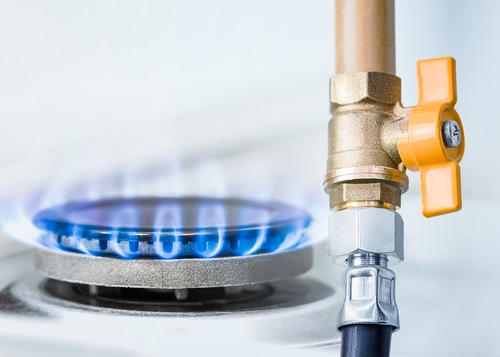
The U.S. Ninth Circuit Court of Appeals on Jan. 2 gave a boost to Pennsylvania’s natural gas industry when it affirmed its previous decision to block a ban on natural gas hookups.
The court’s decision reaffirmed that federal law preempts Berkeley, California’s attempt to use building codes to restrict access to natural gas and therefore prohibit consumers from using natural gas-powered appliances in newly constructed buildings. The ruling opens the door to eliminating similar natural gas hookup bans across the country.
Industry officials say the wide-ranging impact of the court’s decision could negate ordinances passed since 2020 effectively phasing out natural gas use in homes in some cities and states. While environmentalists argue for eliminating the use of all fossil fuels, natural gas advocates said consumers should be given the choice of which energy source to use.
In Pennsylvania, the second-largest producer of natural gas in the United States,
an official with the American Petroleum Institute Pennsylvania said she praised the court’s decision.
“We share the goal of reducing emissions, but a natural gas ban is a misguided policy that would eliminate consumer choice and restrict access to affordable, reliable natural gas. We are pleased the court recognized the flaws in this approach,” Stephanie Catarino Wissman, API Pennsylvania’s executive director, said. “Here in Pennsylvania, natural gas not only provides over 50 percent of households with affordable, reliable energy, but also injects hundreds of millions of dollars annually into our state’s economy while supporting thousands of jobs.”
Karen Harbert, president and CEO of the American Gas Association, said the precedent is a win for energy choice and has national implications.
“Natural gas has been one of the primary drivers for achieving environmental progress, and any ban on this foundation fuel will saddle consumers with significant costs for little environmental gain,” Harbert said. “The natural gas industry has led the way in reducing our nation’s emissions, and we will continue to innovate and advance technologies to help ensure Americans have access to the efficient and reliable energy they need and expect.”
Others said the ruling goes along with what the public wants.
“There’s broad, public support for natural gas development and use, and we applaud the Ninth Circuit’s decision to uphold the consumer’s choice over their energy sources,” Dave Callahan, president of the Marcellus Shale Coalition, said. “Natural gas provides significant economic and environmental benefits, and coordinated efforts to ban its use merely advance misguided political agendas over the best interest of Americans and their freedoms.”
The ruling centers around a lawsuit filed by the California Restaurant Association against Berkeley after the city banned new natural gas piping in new buildings. That ban, passed by the Berkeley City Council in December 2019, was an attempt to move developers and building owners to all-electric new buildings. Since then, more than 70 different city and state governments have passed similar ordinances either requiring, or strongly encouraging, all-electric or fossil-fuel-free new buildings. Going electric is a main tenet of the federal government’s efforts to reduce greenhouse gas emissions, and ordinances like Berkeley’s have widely been seen as a path to getting there.
The restaurant association filed suit against Berkeley in 2019 claiming that the city’s ordinance was preempted by the federal 1975 Energy Policy and Conservation Act (EPCA) which sets federally mandated minimum efficiency standards.
In the case, the U.S. District Court for the Northern District of California held that the EPCA did not preempt local ordinances. When the restaurant association appealed the decision, the Ninth Circuit judges disagreed.
“EPCA preempts building codes like Berkeley’s ordinance that ban natural gas piping within new buildings,” the judges wrote. “EPCA’s preemption provision extends to regulations that address the products themselves and building codes that concern their use of natural gas. By enacting EPCA, Congress ensured that states and localities could not prevent consumers from using covered products in their homes, kitchens, and business. EPCA thus preempts Berkeley’s building code, which prohibits natural gas piping in new construction buildings from the point of delivery at the gas meter.”
The ruling only applies to cities and states within the Ninth District: Alaska, Arizona, California, Hawaii, Idaho, Montana, Nevada, Oregon, Washington, Guam, and the Northern Marina Islands west of Guam.
Another lawsuit to block a gas stove ban in New York is pending in federal court.